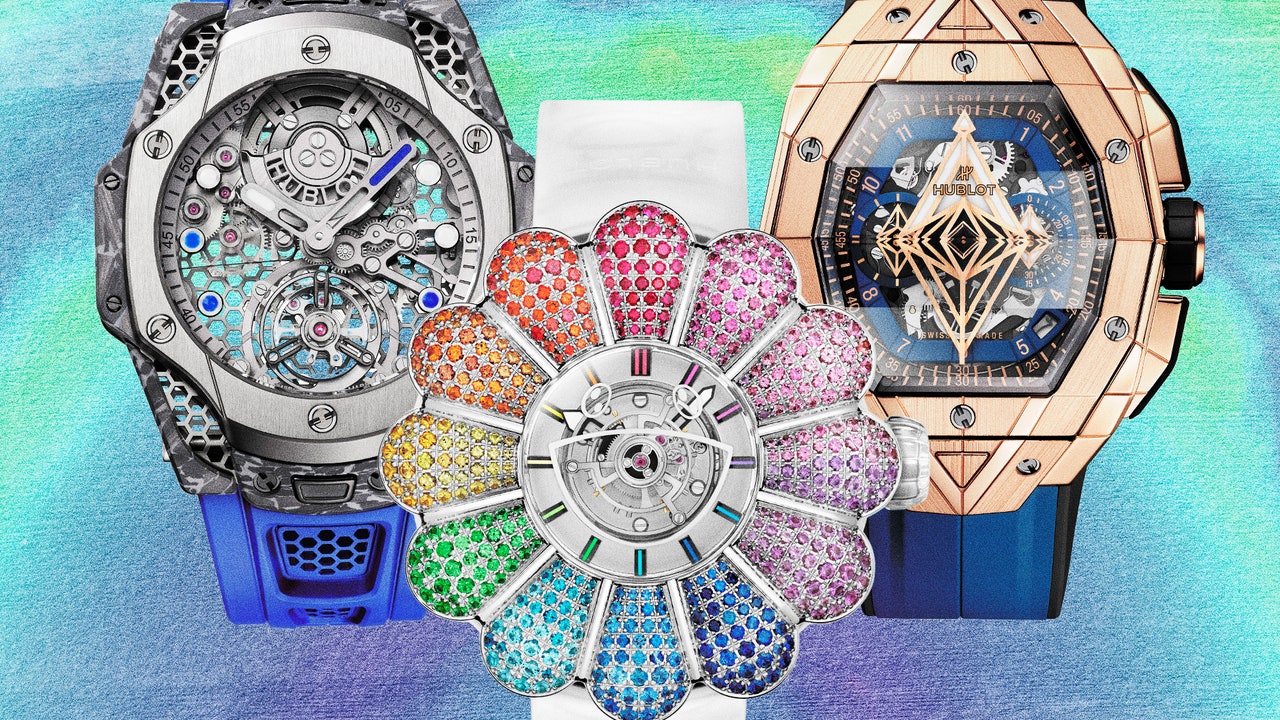This is an edition of the newsletter Box + Papers, Cam Wolfâs weekly deep dive into the world of watches. Sign up here.
In June, I stood in a dark, cavernous room inside Londonâs Tate Modern. Given the passed canapés, the Champagne, and the presence of sculptor Daniel Arshamâin his signature lightweight beige suit and matching New York Yankees capâyouâd have been forgiven for assuming this was the opening of the famed museumâs latest exhibition. But it wasnât new art on displayânot exactly. Instead, Arsham was there to celebrate his new Hublot collaboration: an intricate pocket watch modeled after a water droplet.
Arsham is just one of several art-world superstars that Hublot has brought into its fold, including the celebrated likes of Takashi Murakami, Samuel Ross, Maxime Plescia-Büchi, and Richard Orlinski. Hublotâs tilt in this direction offers a blueprint for how a mass brand can thrive in an increasingly artisanal watch industry.
On the auction scene, where fine art remains king, watches are hindered by a very simple issue: There are too many of them. For the most part, timepieces are mass-produced goods created by an assemblage of peopleâalbeit highly trained specialistsâas opposed to one-of-one works brought to life by a solitary genius. Itâs why big auction houses seek to varnish their lots with unique attributes: Direct ties to celebrities and dignitaries, or even distinctive signs of aging, can help to separate a watch from the pack. The more idiosyncratic the piece, the more it resembles art, boosting its desirability and value by an order of magnitude.
Perhaps thatâs why in the modern watch industry, the idea of the watchmaker as artist is thriving. On the independent scene, watchmaking auteurs like Rexhep Rexhepi, Simon Brette, and Sylvain Berneron use their single-minded visions to make their work feel closer to something that belongs in a gallery than anything coming out of the huge manufacturers in Switzerland.

